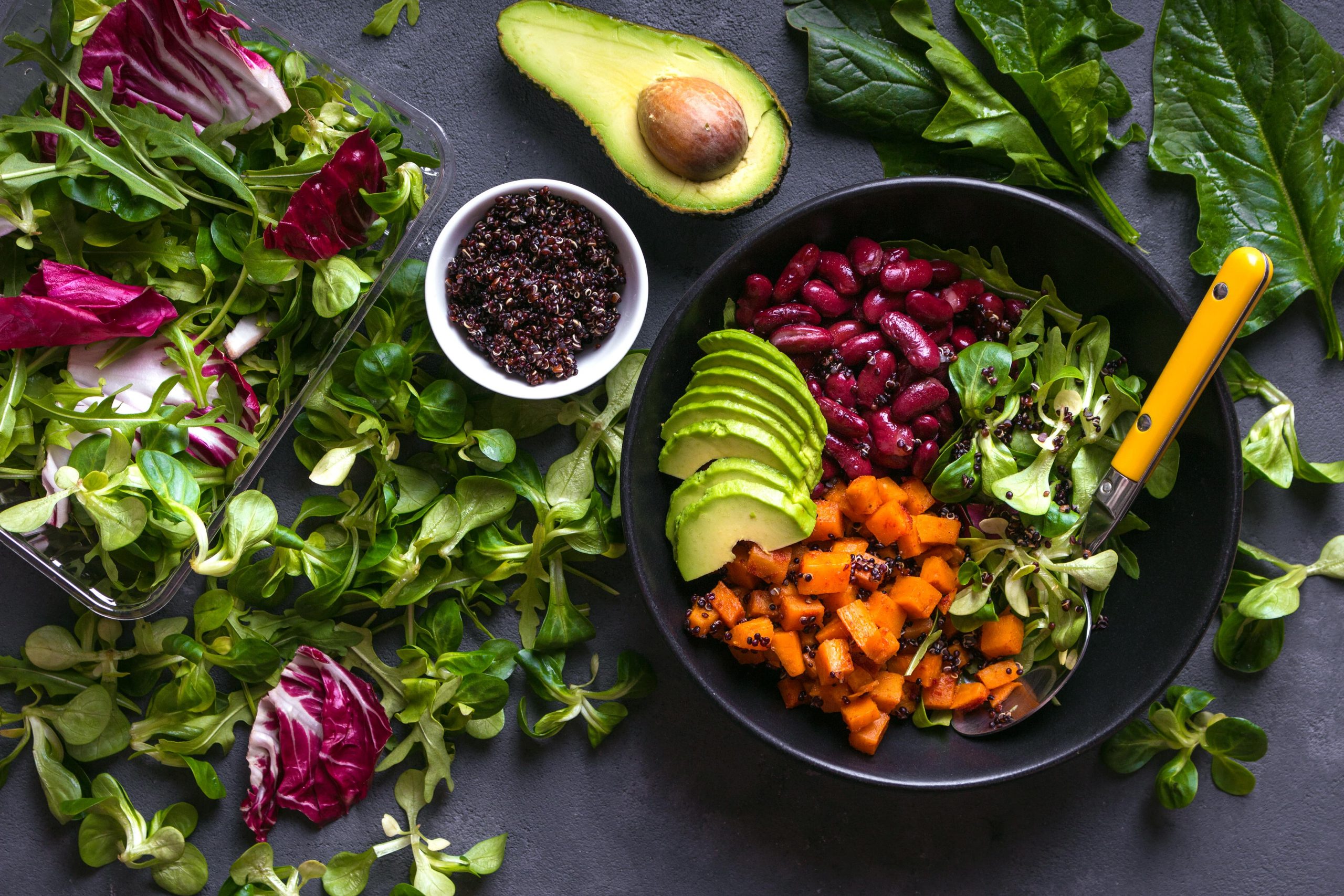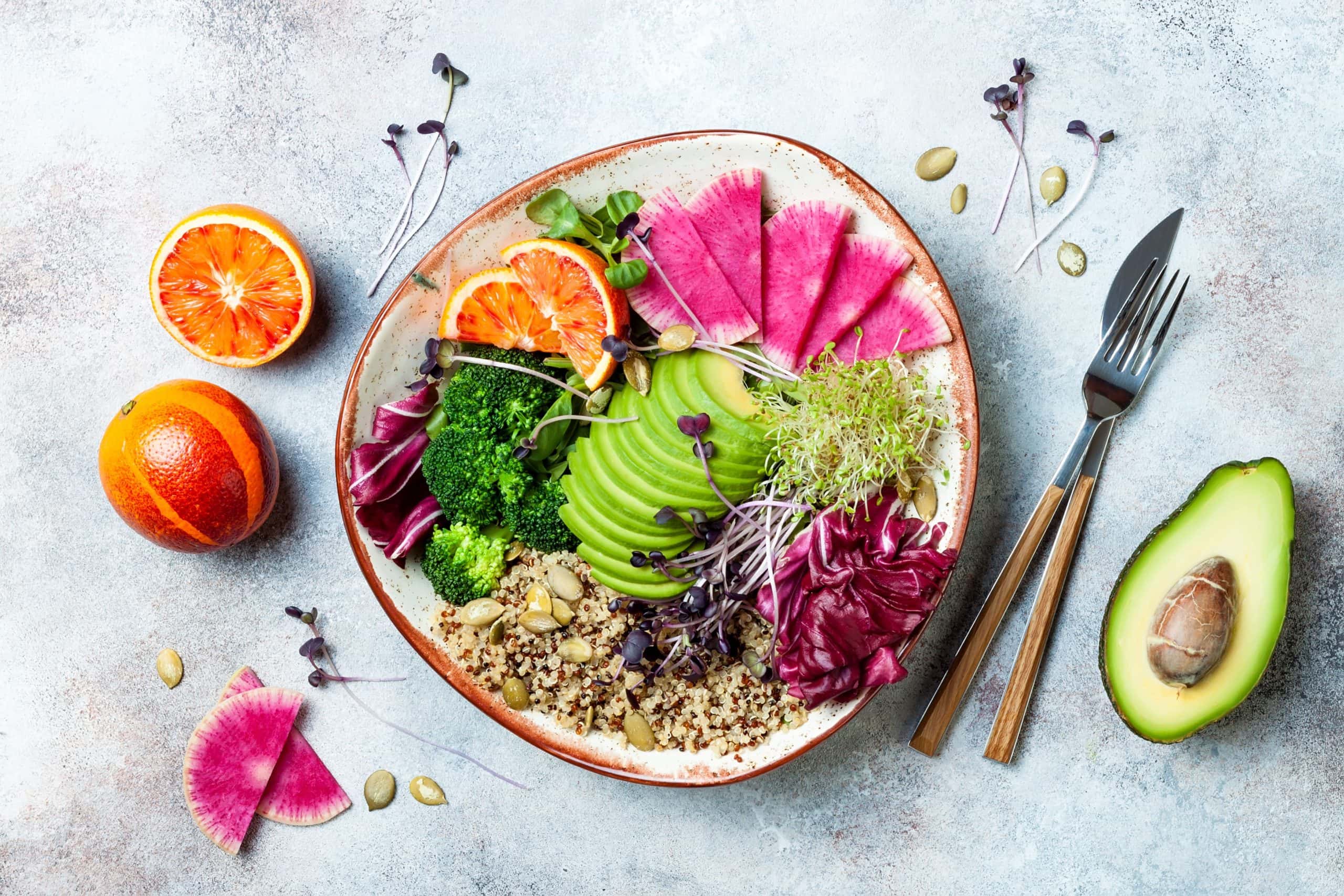Vegetarian diet information unlocks a world of health benefits, culinary delights, and ethical choices. Delve into the realm of plant-based nutrition, where every bite nourishes your body and empowers your well-being.
From essential nutrients to meal planning strategies, this guide empowers you to embrace a vegetarian lifestyle with confidence. Discover the diverse flavors and textures of vegetarian cuisine, and unlock the secrets to creating balanced and satisfying meals.
Nutritional Benefits of a Vegetarian Diet
A vegetarian diet, excluding meat and fish, offers a wide range of essential nutrients that contribute to overall well-being. Plant-based proteins, fiber, vitamins, and minerals play vital roles in maintaining good health and reducing the risk of chronic diseases.
Plant-Based Proteins
Vegetarian diets provide adequate protein from plant sources such as legumes, lentils, beans, tofu, tempeh, and nuts. These proteins contain essential amino acids, the building blocks of proteins, and are comparable to animal-based proteins in terms of nutritional value.
Discover how Vegans Who Eat Eggs and Fish: Uncovering a Unique Dietary Approach has transformed methods in RELATED FIELD.
Fiber
Vegetarian diets are rich in fiber, which is essential for digestive health. Fiber promotes satiety, regulates blood sugar levels, and reduces the risk of heart disease and certain types of cancer.
Notice Fish That Only Eat Plants: Understanding Herbivorous Aquatic Species for recommendations and other broad suggestions.
Vitamins and Minerals
Vegetarian diets provide an abundance of vitamins and minerals, including vitamin C, vitamin E, folate, potassium, and magnesium. These nutrients support various bodily functions, such as immune system health, antioxidant protection, and bone health.
Potential Health Benefits
Studies have linked vegetarian diets to a reduced risk of several health conditions, including:
- Heart disease
- Certain types of cancer, such as colon and prostate cancer
- Obesity
- Type 2 diabetes
The protective effects of a vegetarian diet are attributed to its high intake of fiber, antioxidants, and phytochemicals, which have anti-inflammatory and disease-fighting properties.
Planning a Vegetarian Meal Plan
Creating a balanced and nutritious vegetarian meal plan is essential for maintaining good health. By incorporating a variety of plant-based foods from all food groups, vegetarians can ensure they are getting the essential nutrients they need.
In this topic, you find that Vegans Who Eat Fish: Unveiling the Paradox is very useful.
Incorporating Variety, Vegetarian diet information
To ensure a balanced vegetarian meal plan, it is important to include a variety of plant-based foods from all food groups:
- Fruits and vegetables: Provide vitamins, minerals, and antioxidants.
- Whole grains: Rich in fiber, vitamins, and minerals.
- Legumes (beans, lentils, peas): Excellent sources of protein and fiber.
- Nuts and seeds: Provide healthy fats, protein, and fiber.
- Dairy or plant-based alternatives (fortified): Calcium and vitamin D.
Types of Vegetarian Diets
Vegetarian diets exclude meat, poultry, and fish. However, there are different types of vegetarian diets, each with its own unique set of inclusions and exclusions.
The main types of vegetarian diets are:
Lacto-Vegetarian Diet
Lacto-vegetarians exclude meat, poultry, fish, and eggs from their diet, but they do consume dairy products such as milk, cheese, and yogurt.
Examples of foods that are included in a lacto-vegetarian diet:
- Fruits and vegetables
- Legumes (beans, lentils, peas)
- Nuts and seeds
- Dairy products (milk, cheese, yogurt)
Examples of foods that are excluded from a lacto-vegetarian diet:
- Meat
- Poultry
- Fish
- Eggs
Nutritional considerations for a lacto-vegetarian diet:
- Lacto-vegetarians need to ensure they are getting enough protein from plant-based sources.
- They also need to make sure they are getting enough vitamin B12, which is only found in animal products.
Vegetarian Cooking Techniques: Vegetarian Diet Information
Mastering essential vegetarian cooking techniques opens up a world of flavorful and satisfying plant-based dishes. Explore grilling, roasting, sautéing, and baking to elevate the flavors and textures of your vegetarian creations.
Grilling
- Preheat your grill to medium-high heat.
- Brush vegetables or tofu with olive oil and season with salt and pepper.
- Grill for 5-10 minutes per side, or until tender and slightly charred.
Roasting
Roasting is a versatile technique that caramelizes vegetables and intensifies their flavors.
- Preheat your oven to 400-425°F (200-220°C).
- Toss vegetables with olive oil, salt, and pepper.
- Roast for 20-30 minutes, or until tender and browned.
Sautéing
Sautéing is a quick and easy way to cook vegetables and tofu.
In this topic, you find that Vegetarian Diet Concerns: Exploring the Nutritional Landscape is very useful.
- Heat olive oil in a large skillet over medium heat.
- Add vegetables or tofu and cook, stirring occasionally, until tender and slightly browned.
Baking
Baking is a great way to prepare casseroles, quiches, and other vegetarian dishes.
- Preheat your oven to the temperature specified in the recipe.
- Combine ingredients in a baking dish and bake for the specified time.
Vegetarian Recipes and Resources
Discover a world of delicious and nutritious vegetarian dishes with our curated collection of recipes. From breakfast to dinner and snacks, we have options to satisfy every taste bud and dietary preference.
Recipes
- Breakfast:Fluffy Vegan Pancakes, Savory Tofu Scramble, Oatmeal with Berries and Nuts
- Lunch:Vegetarian Chili, Lentil Soup, Quinoa Salad with Roasted Vegetables
- Dinner:Vegetable Stir-Fry with Brown Rice, Vegetarian Shepherd’s Pie, Creamy Vegan Pasta
- Snacks:Homemade Hummus with Pita, Vegetable Spring Rolls, Apple Slices with Peanut Butter
Resources
- Vegetarian Society: https://www.vegsoc.org/
- Academy of Nutrition and Dietetics: https://www.eatright.org/health/vegetarian-and-vegan-diets
- The Vegetarian Resource Group: https://www.vrg.org/
Epilogue
Embarking on a vegetarian journey is a transformative experience that extends beyond dietary choices. It’s a commitment to health, compassion, and environmental sustainability. As you navigate this path, remember that knowledge is your greatest ally. Stay informed, experiment with flavors, and embrace the vibrant world of vegetarianism.
FAQ Explained
What are the key nutritional benefits of a vegetarian diet?
A vegetarian diet is rich in fiber, vitamins, minerals, and antioxidants, which support heart health, reduce the risk of certain cancers, and promote overall well-being.
How do I plan a balanced vegetarian meal plan?
Include a variety of plant-based foods from all food groups, such as fruits, vegetables, whole grains, legumes, and nuts. Focus on consuming nutrient-rich foods and limit processed foods.
What are the different types of vegetarian diets?
Vegetarian diets range from lacto-vegetarian (consumes dairy) to ovo-vegetarian (consumes eggs) to lacto-ovo vegetarian (consumes both dairy and eggs) to vegan (excludes all animal products).



